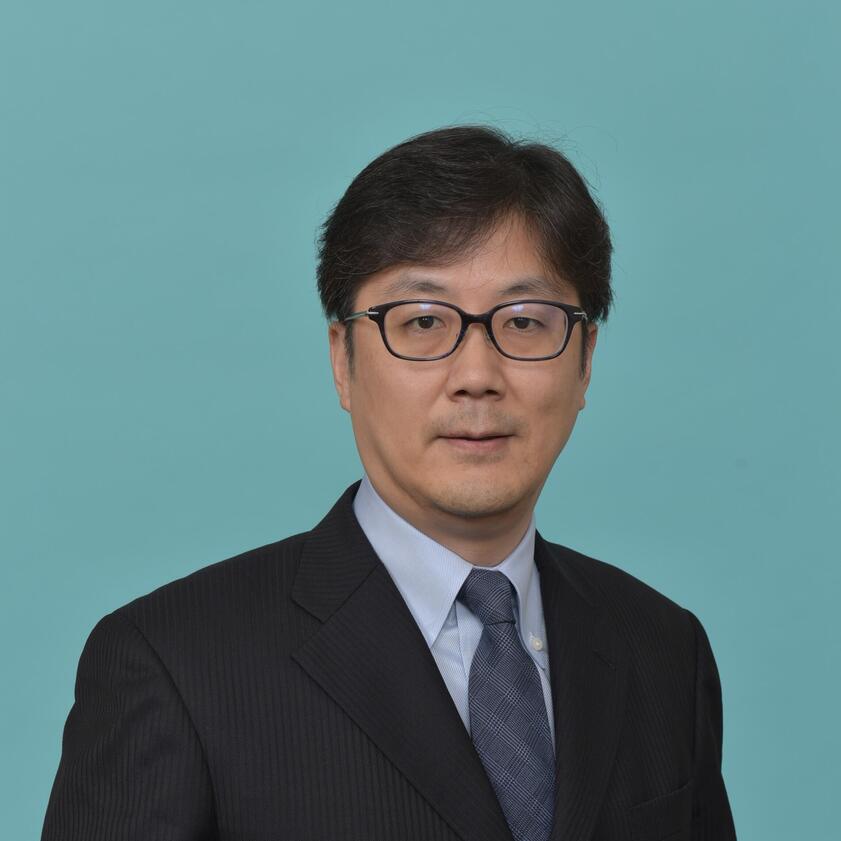Professor Ryuichiro Higashinaka

Researchers'
Associate Professor
Ryoichi Banno
Research Center of Health, Physical Fitness and Sports
I chose the word because I want to do my best today and live my life with no regrets, thinking that today is the last day of my life. The phrase "today is the day" is neither an idiom nor a proverb, but one that I am personally aware of every day. I would like to fulfill my life by viewing each day as a precious and irreplaceable time.
I am studying energy and glucose metabolism in living organisms. In particular, I am focusing on elucidating the pathogenesis of obesity, which is a cause of lifestyle-related diseases, and developing therapeutic methods. We are also investigating the regulation of glucose metabolism by the central nervous system (brain). In the future, I would like to explore medical treatment via the brain nervous system.
I started my research after joining the Department of Endocrinology and Diabetes at Nagoya University Hospital and entering the Graduate School of Medicine there. Initially, like other members of the medical staff, my goal was to obtain a PhD, but after graduating from the graduate school, I had the opportunity to study in the US. That was when I started conducting research in earnest. In that sense, my real trigger was when I was studying in the US.
When I discover something new, I honestly feel that it is interesting. As I pursued my research theme of obesity, I eventually became involved in research on appetite, and through experiments, came to understand the true nature of "desire." Of course, I have not been able to completely clarify and understand the complex nature of "desire," but even so, have made surprising discoveries. When I compare them with what is taught in Buddhism and other religions, I sometimes find myself realizing the "aha" moment. I think that research is profound and interesting.
Leptin, which is given out by fat cells, is an important hormone that cannot be ignored in obesity research, and several studies had already reported that administering leptin into the ventricles of insulin-deficient mice models of type 1 diabetes normalized blood glucose levels without insulin. When leptin was administered from the outside, hyperglycemia improved to some extent but did not normalize, and clinical application was considered difficult. Since I was conducting research using leptin-sensitive mice (PTP1B-deficient mice), I discovered through trial and error that a combination of leptin and a leptin action enhancer could normalize blood glucose levels without the use of insulin. With the grant I received this time, I plan to clarify the mechanism of why the combination of leptin and leptin action enhancer normalizes blood glucose levels in a mouse model of type 1 diabetes.
It may be just ordinary, but I talk to my family and friends about it. I also often visit my local shrine. It is my way of asking God for help when I need it.
When I was a graduate student, I did not like research. I felt that it was merely an extension of getting a medical specialty and degree. However, thanks to my supervisor who took care of me while I was studying in the US, I came to like research. I am in good health now, but my education was delayed because of illness when I was young, and I graduated from a different department before medical school. Thus, my background is different from the standard course of a doctor. Even so, I am surprised that I am able to do research at the university while being a clinician, and I am very grateful for the privileged environment.
I have three goals: (1) to research the pathogenesis of obesity and find a treatment, (2) research the mechanisms of glucose metabolism regulation by the central nervous system (brain), and (3) explore medical treatment via the brain nervous system. Until now, the most common method of internal medicine treatment has been to take a drug and have it absorbed by the organs through the bloodstream. However, I am interested in searching for a treatment method through the brain nervous system.
Name: Ryoichi Banno
Department: Research Center of Health, Physical Fitness and Sports
Title: Associate Professor
Career history:
Assistant Professor, Department of Endocrinology and Diabetes, Nagoya University Hospital, 2011 and lecturer in 2015. In 2017, lecturer, Department of Endocrinology and Diabetes, Nagoya University Graduate School of Medicine. Has held current position since 2018.
Hobbies:
My work has become my hobby. I like both clinical practice and research. Incidentally, I am also interested in oriental medicine such as acupuncture and moxibustion and Chinese herbal medicine, and work on them when I have time. When I was a student, I was addicted to skiing, and practiced in the mountains without studying. I was also a skiing instructor for a while.